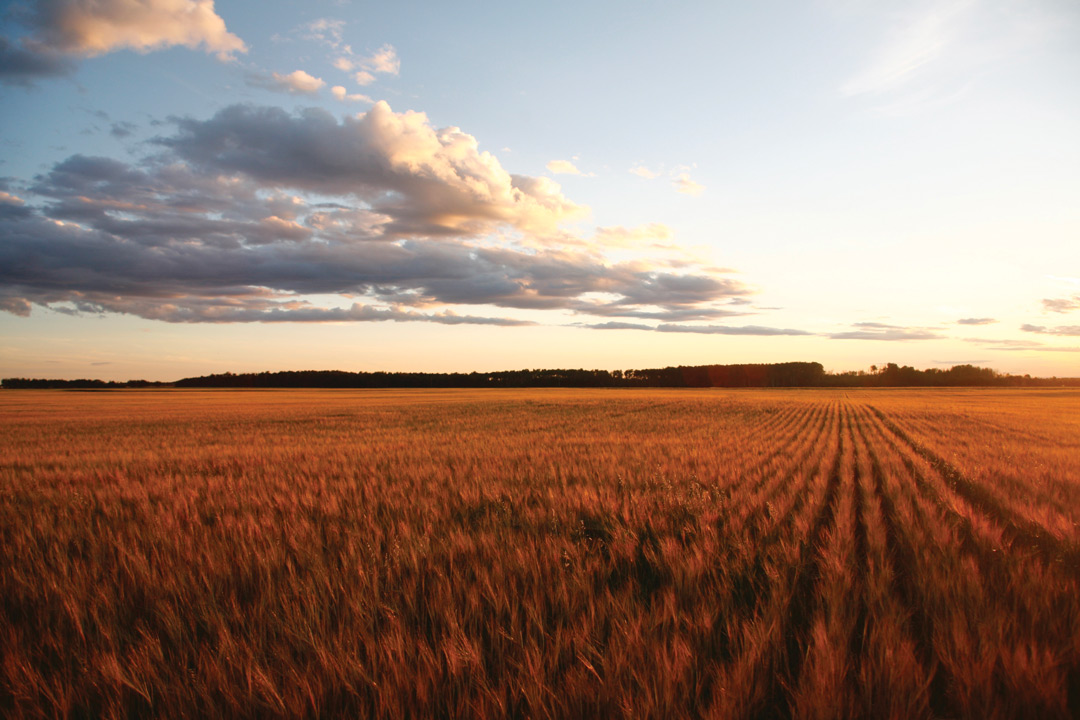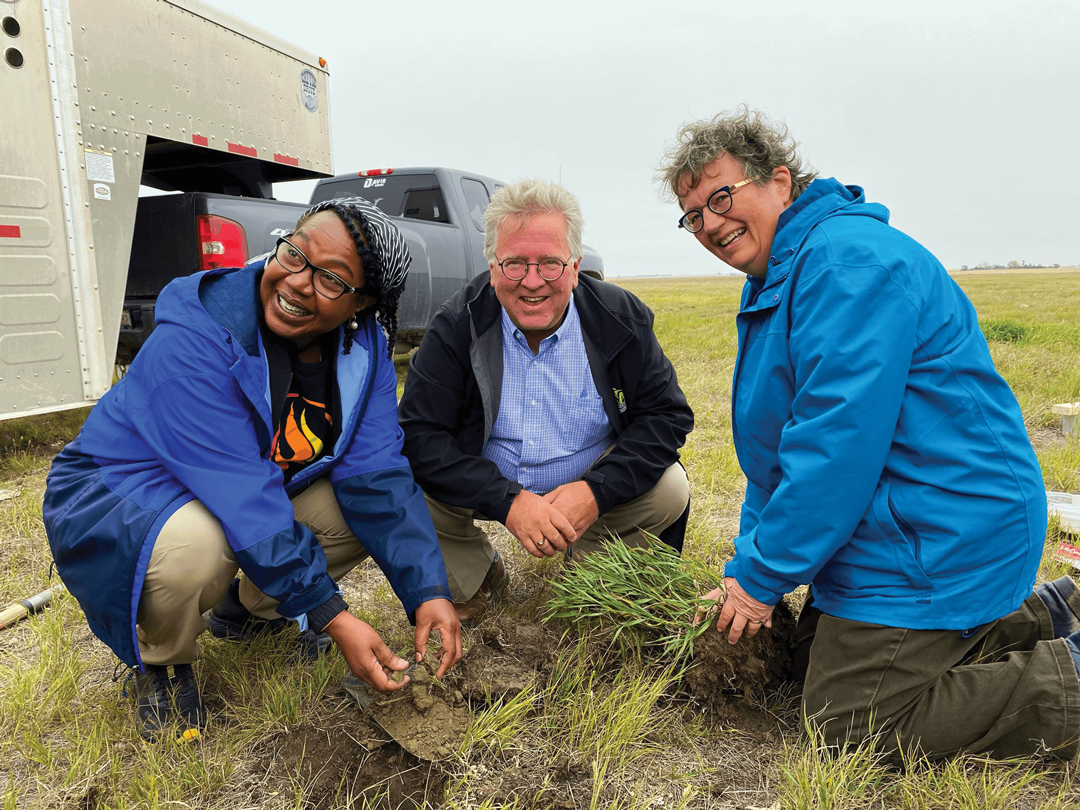SCIENCE NON-FICTION
REWARDING CAREERS ABOUND IN AGRICULTURAL RESEARCH
BY KELLY TURKINGTON
Travelling around Western Canada in rural and urban areas, you will often see signs for agricultural research centres and field or livestock research sites. You might also see people working with livestock, planting test plots, doing fieldwork, taking notes or harvesting research trial crops. These research activities are undertaken by universities, governments, institutes, private-sector companies and farmer-directed applied research organizations. Many people are unaware of the wide range of careers in agricultural research and the issues and opportunities addressed via the research activities of people working in a range of scientific disciplines.
This lack of awareness regarding agricultural research and potential career options isn’t surprising. As I finished up high school at Evan Hardy Collegiate Institute in Saskatoon, I wondered about what to do. I finally decided that since my father was farming in the St. Brieux area of Saskatchewan, I would enrol in agriculture at the University of Saskatchewan. At the time, I wondered what courses I would have to take and what I would be learning about. When high school friends heard about my chosen area of study, they would often reply, “What? Are you going into agriculture to learn to drive a tractor?”
As I looked at my course options, it became clear that a degree in agriculture offered an exciting range of opportunities related to crop and livestock production, food and feed quality, economics and agricultural mechanics. I decided to take a general course load with a focus on crop science. In my third year, I had an epiphany after taking an introductory course in plant pathology from Prof. Robin Morrall. My mark in the course was average, but the course, and Robin’s passion for plant pathology, sparked my interest.
During university I was fortunate enough to expand my awareness of career options in agriculture as a summer student. For two summers, I worked with Bob Baker, a wheat breeder and professor in the plant science department, and his staff and graduate students. It was my first exposure to agricultural research and I learned about small plot research, wheat variety development, crop physiology and plant development. Subsequently, I worked as a summer student with Agriculture and Agri-Food Canada (AAFC) and the biology department at the University of Saskatchewan, where I learned about career options related to the management of canola and pulse crop diseases.
My knowledge of careers in agriculture and agricultural research continued to grow during my M.Sc. and PhD programs, as a post-doctoral fellow and as a plant pathologist at AAFC’s Lacombe Research and Development Centre. Over the past 35 years, I have had the opportunity to work and interact with a range of technicians, summer students and research scientists working in agronomy, weeds, entomology, soils, food/feed quality, molecular biology, plant breeding and plant pathology. Growing up in the Sutherland neighbourhood of Saskatoon, I would often wonder what all those people were doing in the research plots and laboratories at the University of Saskatchewan. Now I am much more aware of the diversity of work in agricultural research and the wide-ranging career options that are available.
The issues and opportunities in agriculture are not static, but continue to evolve. At the same time, we are seeing the older generation of agricultural researchers retire, and an infusion of young minds is needed. For someone finishing high school and looking at what career path to take, agriculture—and more specifically, agricultural research—should be a serious consideration. The diversity of career options is wide, ranging from the gene level to the field level and from the farm gate to the food plate.
Back in 1980, when I was a student graduating from high school and ready to start university, I couldn’t comprehend the breadth and diversity of career opportunities in agriculture and agricultural research. In 2016, these options are even more extensive. There are many easy ways to learn about these exciting careers in agriculture and agricultural research. You can attend career days and open houses at universities and agricultural colleges. If you are fortunate enough to live close to a research centre or farm, you can check out any field days or tours they are hosting. Lastly, don’t be shy—seize the opportunity to talk to people in agriculture and agricultural research. They are passionate about what they do and would be happy to share details about their experience that could set you on the path to your own rewarding career in the research field.







Comments